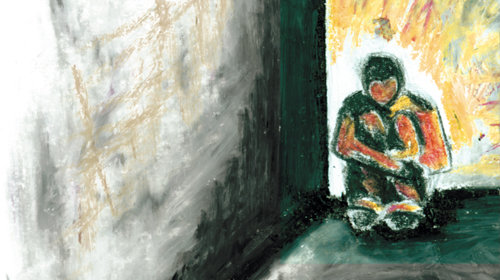
Yesterday, Governor Jerry Brown signed California’s Senate Bill 9, the Fair Sentencing for Youth Act, giving California youth sentenced to die in prison a second chance at life. There are 309 child offenders serving life-without-parole sentences in California for murders committed when they were younger than 18. The bill, known as SB 9, gives these individuals the chance to earn parole after serving at least 25 years in prison. It allows juvenile offenders sentenced to life without parole to petition the sentencing court to review their cases after 15 years and reduce their sentence to 25 years-to-life if they show remorse and are taking steps toward rehabilitation.
The bill is a huge step forward, both for the 309 child offenders who now have a second chance at life, but also in bringing us closer to ending the draconian practice of locking children away for life. The United States is the only country in the world where children under 18 are imprisoned for the rest of their lives without any chance of parole. The imposition of life without parole on minor children is explicitly prohibited by the Convention on the Rights of the Child, a treaty which has been signed and ratified by every country in the world except the United States and Somalia. Despite this, California and 38 other states allow judges to sentence minors to die in prison. California has more than 10 percent of all juvenile life-without-parole cases in the U.S.
More than 2,570 people convicted as children are serving life sentences without the possibility of parole in the U.S.—treated, in the words of Supreme Court Justice Ruth Bader Ginsburg, as “throw away people.” Contrary to popular belief, the draconian sentence is often not reserved for children who commit the worst crimes. Human Rights Watch found that nationally, 59% of youth sentenced to life without parole had no prior criminal convictions. In California, 45% of youth sentenced to life without parole for involvement in a murder did not actually kill the victim, but instead were convicted of felony murder, or for aiding and abetting the murder, because they acted as lookouts or were participating in a robbery or other felony when a murder took place. In many cases where children were prosecuted with an adult for the same offense, the adult codefendant received a lower sentence than the child.
Moreover, there is significant racial disparity in the imposition of life without parole for juveniles in the U.S. Nationally, Black youth are serving these sentences at a rate 10 times higher than white youth. In California, Black youth are serving the sentence at a rate that is 18 times higher than the rate for white youth, and Latino youth are sentenced to life without parole five times more than white youth.
In three recent cases, the U.S. Supreme Court has declared that juveniles cannot receive life without parole for non-homicide offenses or mandatory sentences of life without parole for any crime. Until it is abolished, the ACLU will continue to work to challenge the practice of locking up teens and throwing away the key. The ACLU is actively challenging this practice in Michigan, a state with 361 individuals serving life sentences without the possibility of parole for crimes they committed as children, with a federal class action lawsuit filed by the ACLU and an amicus brief in a separate case before the Michigan Court of Appeals. The ACLU has also challenged Michigan’s juvenile sentencing laws and policies before the Inter-American Commission, charging the United States with violating universally recognized human rights laws and standards for allowing Michigan to impose life without parole sentences on children.
There is much work to be done. To take action, join the growing movement of individuals and organizations working to end juvenile life without parole by getting involved with the Campaign for Fair Sentencing of Youth (link takes you away from ACLU site).
Learn more about juvenile justice: Sign up for breaking news alerts, follow us on Twitter, and like us on Facebook.
